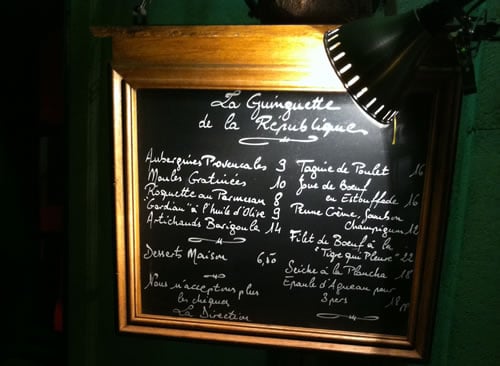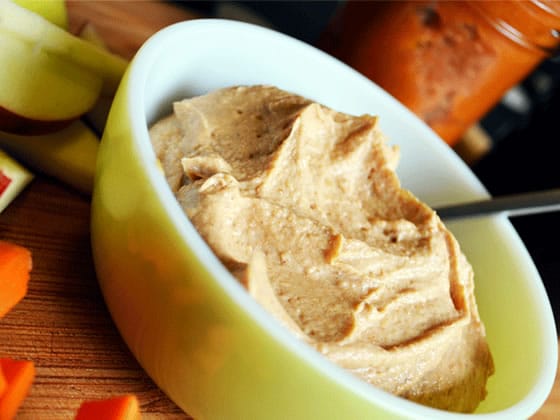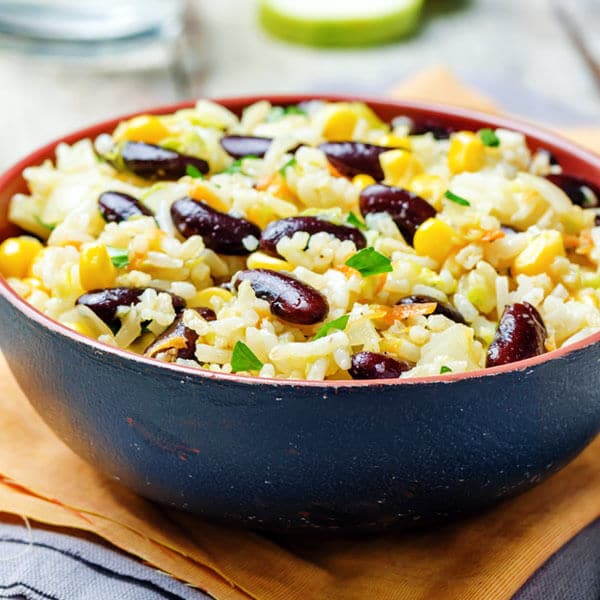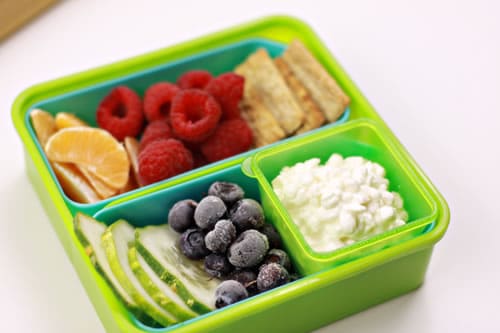The French Paradox
Dec 10, 2010, Updated Dec 10, 2016

Matty and I just returned from a wonderful week in France, celebrating our first anniversary and enjoying some much-needed R&R. I decided not to blog much about the experience while there (and to avoid Twitter almost entirely), partly because I was on vacation, and partly because it felt exceedingly rude and awkward to be whipping out the camera and taking pictures of my food (something most of us have no qualms about doing here in the States!).
We spent the first few days in Paris with our friend Piper, an amazing photographer, host, and tour guide, then took the train down to Montpellier. From there we rented a car and drove to the charming and romantic, 7oo-year-old walled city of Aigues-Mortes (thanks for the recommendation, Mike!).
Naturally, we explored some of the wonderful gastronomy that France has to offer, from fine dining to the best falafel I’ve ever had (really) to the requisite Nutella crêpes on the street.* The food is incredibly rich across the board, but everywhere I look people are fit and trim – at least compared to the U.S. I’m not the first to take notice, of course, as it actually has a name: The French Paradox.
This phrase was first used about twenty years ago, and it primarily refers to the fact that the rates of heart disease are lower in France than the U.S., even though the diet is high in saturated fats. Indeed, everywhere we go there are tons of full-fat cheese and butter (oh, the butter!). According to Wikipedia, the French consume about four times as much butter as we do, 60 percent more cheese, and about three times the pork.
If you Google “French Paradox” you’ll come up with a variety of explanations. Some think it’s the resveratrol in the wine. Some think it’s three meals a day with virtually no snacking in between. I doubt it’s the reseveratrol (the quantities are too low), and you probably already know my feelings about eating less food, more often. Here are my theories as to what’s going on.
People walk. A lot.
Paris reminds me of New York in that there’s a fantastic subway system and the streets are always bustling with people walking with deliberate intention. The streets are also uneven – since they’re hundreds of years old – which requires a bit more agility to get around. (Also helping the parallel: People in New York are doing better than the rest of the U.S.). Even while it was snowing last week, the streets were filled with people navigating the slippery, slushy streets.
Gas is also expensive – about $8 a gallon – and taxis aren’t cheap, either. (One short, seven kilometer cab ride cost us about 25€, or $33). Both are great incentives to use your feet instead of your wheels.
Meals are slower and smaller.
Unlike the U.S., there isn’t 24/7 access to restaurants and food. On our trip we always seemed to have a knack for wanting to eat at the wrong times (thanks, jet lag!), and we often found that restaurants were not serving, or if they were, the staff would look at us like we were lunatics for wanting to eat at 11am or 3pm.
When we did eat, meals were at a much slower pace, often with multiple courses of small portions. This, of course, gives you more time to enjoy your food, taking pleasure in what you’re eating. Perhaps more importantly, it gives more time for fullness signals to travel from your stomach to your brain (there’s generally about a twenty minute delay, so eating slower allows this process time to happen before you’re totally stuffed).
The food is less processed.
Sure, you can find processed food in France, but it’s the exception, not the rule. Evidence is mounting that ultra-processing is a likely contributor to obesity. Once again, fresh, whole foods tend to be better for us overall. Even Weight Watchers recently revamped their points system to incorporate this newfound understanding!
Sugary beverages are rare.
People don’t drink 64-ounce Big Gulps in France – it just doesn’t happen. Soda is a treat, not something to be guzzled with every meal. It also tends to come in much smaller bottles. Sodas are significantly more expensive here, too – a great deterrent. One restaurant on our trip – not a particularly fancy or expensive place – charged 8€ for a Coke. That’s an $11 Coke!
Most juices that I saw for sale were actual, bona fide fruit juices — not juice-flavored sugar water — and again, in much smaller bottles.
Weight is a bigger factor than saturated fat intake.
This is the big one, I think. As the stunt-pulling, twinkie-eating nutrition professor (sigh) recently demonstrated, if you eat nothing but junk food – but still lose weight by keeping your calories down – your cholesterol levels will go down, too. I’m not a fan of his experiment since it could be easily misinterpreted (here’s a great article on Civil Eats about that; well worth the read), but the bottom line is that when you lose that excess 30 pounds, your health will improve across the board.
I’m not saying that if you’re skinny you can eat anything you want… but it sure as heck helps.
Some unanswered questions.
What about Fiber?
This is the one where I’m really not convinced that the French diet is superior. There’s a huge amount of white bread (I have yet to see any 100% whole grain breads here, though I’m sure they exist) and high-fat, rich cheeses (and let’s not forget the butter!) — all of which are low in fiber. But when we want a salad? We’d end up with a plate of romaine lettuce doused in creamy dressing. Maybe they think that’s what we Americans wanted, but it sure was hard to find much roughage in our meals. Considering all of the benefits of fiber, I’m a bit stumped as to how anybody in this country manages to stay regular.
What happens from 6pm to 8pm every night?
I’m stumped on this one, so if you know the answer please help me out. Shops and businesses generally close around 5:30 or 6pm, yet even an 8pm dinner reservation is fairly early. What are people doing for those hours in the evening before dinner? Naptime? Facebook?
All this to say…
There’s a lot to be learned from the way the French eat. The biggest difference, beyond all the measurable criteria, is the relationship the French have with food.
Food is something wonderful in France, something important. In the States, food is something that we have to deal with to survive. The need to eat gets in the way of our busy lives, so we eat standing in the kitchen, we eat over the keyboard, and we eat in front of the television.
The French, instead, have an hour and a half lunch. The first hour is spent enjoying several small courses, and the rest of the time is spent drinking coffee and socializing.
Food is respected there, too. Nearly everywhere we went the quality and taste of the food was outstanding. At the Montpellier train station, for example, we purchased two sandwiches to go from a small pastry counter. They were made fresh to order, not like here, where it would be a pre-made sandwich, pulled out of the glass case and tossed into a 45-second-super-fast toasting oven.
Of course, the culture of work is different in France, too, and that enables much of what I’m talking about. Shops are open for a few hours in the morning, closed for a long lunch, and then open again in the afternoon for a few hours.
There’s not much of a 24/7 attitude here, so everything is slower. It reduces stress. It leaves time to savor, to digest, and enjoy.
—
* Culinary highlight of the trip: Afaria. The food was creative yet unpretentious, and downright heavenly. If you’re in Paris, don’t miss this friendly, neighborhood gem!




















1. I dehydrate fruit then whizz it in the food processor to turn it into natural sugar (no slavery required except my own) 3. I buy heritage grains from a local farmer and grind my own. That way I can control what is in it and bump up the nutrients (ie home clabbered buttermilk, double the backyard eggs) and use things like spelt or emmer. Modern wheat has been designed to make excellent bread. I choose heritage grains which have less gluten (not necessary in a pancake) and more protein and other nutrients. Flour that you buy in a store has been aged to help destroy (oxidize) some of the starches on purpose because it bakes a higher loaf of bread that way. By grinding my own I know that flour has not yet oxidized. I also soak the grains overnight first to reduce the phytic acid and unlock more… Read more »
I. Am. Impressed.
🙂
We have significantly cut back our sugar intake – to about 15 #s per person per year which is slightly higher than it was at the turn of the century but not by too much. My family still loves jam but we are eating less of it than we used to. We have dessert once a week now and sweeten things like pancakes with no sugar apple or pear butter, or I add dried and whizzed pears to baked goods instead of sugar. I’m not sure that helps though since it is still sugar. When we are out of bread I tend to cook whole grains as a starch to go along with the meal since we can’t grow rice in Washington state and we eke out our potatoes to last us all year. We eat grains in the form of risotto and pilaf or in salads mostly. That does… Read more »
1. What is a “whizzed” pear?
2. You make a great point about the unground, whole grains (as opposed to whole-grain flours). Not only will it be more filling physically, but it slows you down so it gives more time for fullness signals to be processed by your brain (which usually takes around 20 minutes).
3. Not sure if this would pass muster in your house, but for those times when the kids insist on pancakes, Bob’s Red Mill’s 100% whole grain pancake mixes are darn tasty. 🙂
Re: #3: Bob’s Red Mill’s anything is so tasty! 🙂 I was so happy to be able to find them on this island (I’m spending some time on Guam). Just picked up some bulgar yesterday for a killer Xmas salad (+ local cukes/cherry toms/flat parsley from the farmer that supplies the restaurant where I have a day job) . Some folks at our apartment complex, all far from our families on the mainland, are doing a potluck and it’s a beautiful thing!
Wonderful! Potlucks are always the best!
May you have a wonderful holiday and a happy new year.
I second the change that not eating processed foods brings. I started cooking everything we eat from scratch nearly 2 years ago now, although I grind all the grains and we are just now allowing white flour back in the house. It’s painfully obvious to me what drives my weight fluctuations – and it’s the grains. It’s not the fat at all. Because we are only eating foods from a farmer or that I grew everything is full fat – tons of cheese, pastured pork (it costs me $1/# to cure my own bacon now so we are eating a lot of it!), grass fed beef and foraged chicken, along with a ton of backyard eggs. We only drink whole, raw milk or things I make from it like buttermilk, yogurt, kefir or cheese. The food is has amazing clarity and we don’t like processed foods any longer. But my… Read more »
Sounds like you’re on an amazing journey that’s reaping many rewards! Wonderful!
It’s funny, right around the same time I read your comment, I found this LA Times Article, also talking about how it’s carbs, not fat, that are the issue. I’ve been thinking way this for a long time (as evidenced by my first rule — eat only whole grains).
The concern I have, though, is that it’s going to trigger a resurgence of the popularity of the Atkins diet — which I believe to be unhealthy overall and unsustainable. Complex carbs and carbs from whole foods, aren’t the problem; we need to focus on reducing or eliminating refined grains and simple sugars!
Greetings Andrew,
Thanks for your response.
The snow and cold weather does make going outdoors for groceries challenging – but you do get used to that piece, and it beats not having any food in the house!
There are entire stores of frozen food – amazing frozen foods actually.. much of it is very reasonably priced “gourmet” with seasonal dishes such as chestnut soup in winter and gazpacho in summer.
Also, large department type stores have frozen food sections, but they are rather small by American standards. You will find large prepared food sections – also with seasonal offerings – and they tend to sell out daily on the hot meals.
Food wise here it’s a different world!
Talk to you soon,
Marie z
Interesting! Clearly, I’m going to have to spend significantly more time in France next time I visit… 🙂
Bonjour Andrew, I am very fortunate to be living in Paris while my daughter finishes high school (I know, lucky girl!) I also have the advantage of being bilingual, as my mom was from Paris – so I also know the city quite well. Here’s the deal with fruits and vegetables: Most Parisians do their grocery shopping from outdoor Marchés several times a week. There are over 65 locations in Paris – and each Marché is ‘open’ at least 2 days (from 7am – 2pm generally) a week. The only day you will not find an open air market is on Monday. Farmers from as far as 250 – 300 kilometers make the drive to sell their goods… there are also wholesalers, but the growers/producers have the longest lines and most loyal clientele. Unlike a restaurant meal, a home cooked French meal has loads of fruits and vegetables – whatever… Read more »
Hi Marie,
Thanks for your comments. I’m guessing I didn’t see much grocery shopping because it was outrageously cold and dumping snow. That’ll put a damper on the grocery trips, for sure!
Also interesting to hear the difference between home-cooked French meals and restaurant meals. Are there as many frozen/prepared foods sold in France as there are in the states?
Congrats on dropping that ten pounds — especially without effort. Seems to be the case-in-point, right? 🙂
Best,
Andrew
Thanks everyone for your thoughts on the 6pm-8pm curiosity!
I think portion size is so important. Here we are so used to our meals being cheap and big. If the food at a restaurant isn’t piled up on an over-sized plate, people think they aren’t getting value for their purchase. So the trade off is low quality ingredients that don’t taste good, and a tablespoon of salt on top to add flavor. So many people don’t realize how good food can actually taste.
So, so true. I had lunch at Cheesecake Factory today. They now have a nutrition information book (one per table!). I’d estimate that about 90% of the dishes — including appetizers — are over 1,000 calories. CF is probably the most extreme example (except, perhaps, for Grand Luxe cafe, which I believe is owned by the same company).
I agree – give me quality over quantity any day of the week.
Great post Andrew! Sounds like you and Matty had a wonderful trip.
A few random observations (based on living in Paris and Nice at various times):
Between 6pm and 8pm? I don’t think people are napping; they’re most likely preparing their dinner or stopping by their local cafe for an apéro.
Too much white bread? Well, I’m willing to bet that the ingredients in your average Parisian baguette are far healthier than Wonder Bread. There is whole grain to be found, but fiber for many in France comes from fruit and veggies. Du pain est du pain — I certainly hope never witness the demise of a classic white bread baguette.
Overall, I think the French simply enjoy a bit of everything and tend not to worry about fat content, fiber, etc. Thus, I believe this innate sense of moderation is what underlies the “French Paradox.”
Well said, Caroline. It’s funny, while there I tossed out my first eating rule (only whole grains), knowing full well that it would be nearly impossible, and, I’d miss out on some of the experience if I was to pass on the baguettes! Even so, the bread never felt as unhealthy to me as a similar baguette would have in the states. Not sure if that was more in my head, or if the ingredients are actually different — but either way, I’m glad I chose to fully partake in the food! 🙂